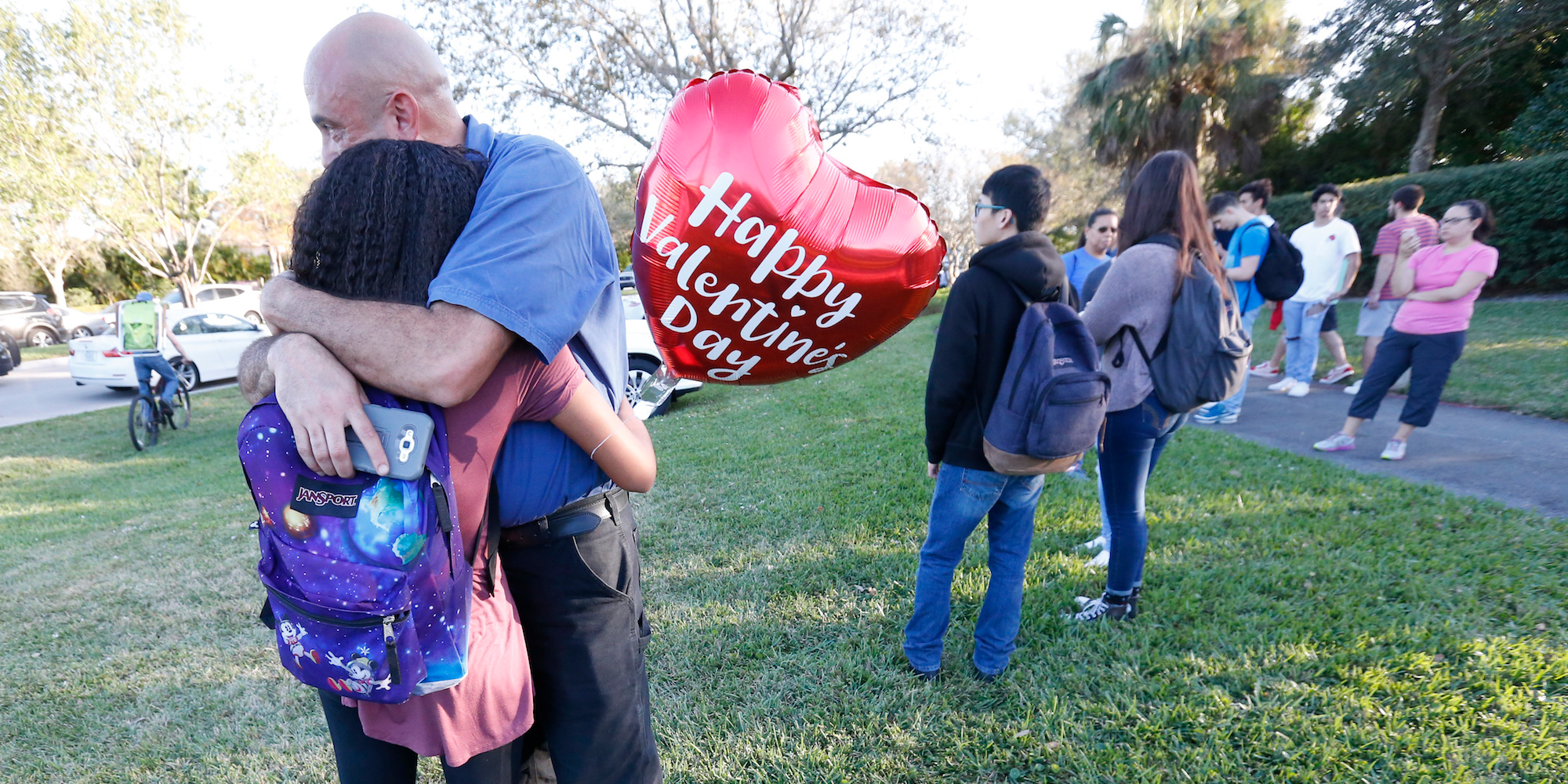A deadly shooting at a high school in Parkland, Florida, on Wednesday has triggered a fiery debate on gun control, yet again.
At least 17 people were killed after a young man armed with an AR-15 and multiple magazines approached the Marjory Stoneman Douglas high school and committed one of the deadliest school shootings in modern US history.
On Thursday, police charged 19-year-old Nikolas Cruz with 17 counts of premeditated murder. Officials said he purchased the weapon legally.
As with previous mass shootings, calls immediately erupted for Congress and President Donald Trump to “do something” to prevent the next deadly attack.
"From my personal viewpoint, it's time for Congress, government, somebody to do something. It's time to talk about what the problem is and try to fix it," Melissa Falkowski, a teacher who said she hid 19 students in her classroom's closet during the shooting, told CNN in an impassioned interview. "I feel today like our government, our country has failed us and failed our kids and didn't keep us safe."
While many lawmakers, victims, and gun control advocates have demanded swift political action, their opponents have cautioned against knee-jerk reactions and implored the public to wait for more information first.
As for the American public, their views on gun control are highly nuanced. Here's what they think:
Spring 2017 surveys show 89% of Americans — including gun-owners and non-gun owners — tend to agree on one thing: the mentally ill should be prevented from purchasing guns.

Sources: Pew Research Center, NPR
The so-called "gun show loophole," through which people can purchase firearms without background checks through private sales and gun shows, is similarly non-controversial. Surveys show 84% of US adults — including 77% of gun owners and 87% of non-gun owners — believe the loophole should be closed.

Source: Pew Research Center
Another 83% of American adults believe people on the FBI's no-fly list should be blocked from buying guns. But civil liberties groups have decried previous attempts to push such legislation through Congress, arguing the no-fly list is arbitrary, frequently inaccurate, and discriminatory against Muslim-Americans.

Sources: Pew Research Center, Business Insider
The major disagreements begin when assault-style weapons and high-capacity magazines come into play. Fewer than half of gun owners favor banning assault-style weapons, compared to 77% of non-gun owners, while those numbers are 44% to 74%, respectively, for banning high-capacity magazines.

Source: Pew Research Center
The National Rifle Association's lobbying power is a similarly polarizing issue. Just 19% of US gun owners say they belong to the National Rifle Association — fewer than one-fifth of all the gun owners in the country.

Source: Pew Research Center
But 44% of American adults believe the NRA has too much influence over gun legislation. Meanwhile, 40% believe it has just the right amount of influence, and 15% believe it has too little.

Source: Pew Research Center
Those beliefs appear split along party lines, even among gun owners themselves. Sixty percent of Democratic gun owners believe the NRA has too much influence, while 67% of Republican gun owners believe it has just the right amount of influence.

Gun ownership in America has actually been declining for years — yet gun sales are at historic highs.

Sources: FBI, The Washington Post
This suggests that America's dwindling group of gun owners are stocking up on firearms more than ever. In fact, the average US gun owner possesses eight guns.

Sources: The Washington Post, The New York Times
Just 30% of US adults say they currently own a gun.

Source: Pew Research Center
Among gun owners, 67% say protection is a major reason (as opposed to hunting, sport shooting, collecting, or job-related reasons).

Source: Pew Research Center
Nearly three-quarters of gun owners believe owning a gun is essential to their personal freedom.

Source: Pew Research Center
In general, 55% of Americans want gun laws to be more strict, 10% say they should be less strict, and 34% want to keep them as they are now. It remains to be seen if those numbers will go up after another deadly mass shooting.

Source: Gallup

